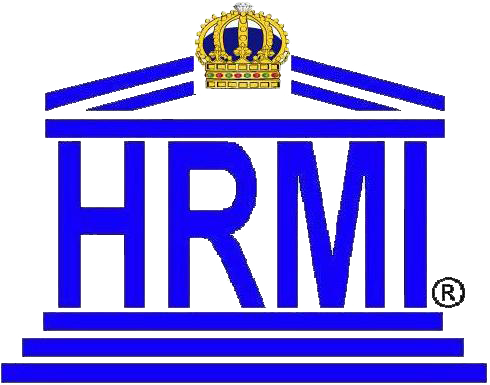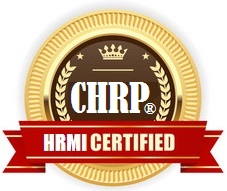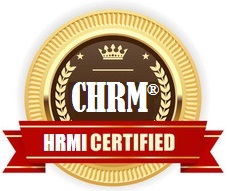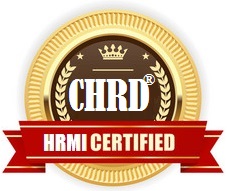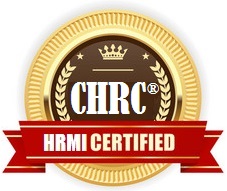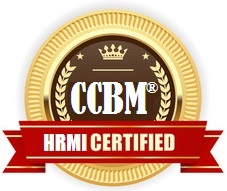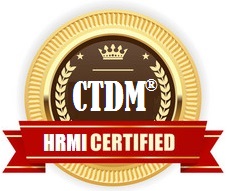PHRC
Professional Human Resources Certifications (PHRC)
HRMI® Credentials: Right For You – Right For Business
In today’s hypercompetitive business world, there are numerous reasons why an HR certification matters. For starters, one out of every two hiring managers prefer candidates with certification, according to the World Economic Forum’s Future of Jobs Report 2025 highlights the crucial role of HR in navigating the evolving job market, emphasizing the need for HR leaders to become strategic “chief simplifiers” amid technological advancements and changing workforce dynamics. As the competition for this job grows, HR professionals with valuable certifications, complying with the Global Technical Competency Standards, may be more likely to stand out from the other candidates.
HR: Then and Now
Today’s human resources field is light years ahead of when HR was predominantly limited to administrative duties. Human resources professionals still perform traditional tasks like employment screening and answering benefits questions, but they are also pivotal in high-level planning with responsibilities like consulting with top executives to chart strategic direction and shaping key policies.
The Importance of HR Certification
It often makes a world of difference when you can show others just how dedicated you are to your career. In general, to be respected as a human resources professional and to be considered for higher level positions, you must have an HR Certification. This valuable credential can help distinguish you as an HR expert and professional. For more information about why HR certification matters to you, there are a number of reasons detailed in the Value of Certification Survey from the HRMI®, including:
- Hiring managers typically consider an applicant’s certification when making hiring decisions
- Certified HR professionals may inspire greater trust and confidence from business colleagues than their non-certified HR co-workers
- Some organizations believe hiring HR-certified professionals gives them a competitive advantage
- Business leaders may find HR-certified professionals better motivated and knowledgeable than non-certified HR workers
- HR professionals report that certified HR professionals can help create a positive impact on their organizations’ financial performance
What Does HR Certification Mean to You?
There are several reasons why an HR certification can matter, both personally and professionally. HR certification is a career-long commitment that can help demonstrate to your peers and your company that you are driven to be a successful human resources manager.
Prestigious HR Credentials:
- Can help set you apart from those without it
- May help increase your professional confidence and satisfaction
- May increase earnings potential
- Can result in greater respect from your organization
- May make you a better candidate for a new job
Earning a credential from HRMI® speaks volumes ― about you as an HR professional, about the organization you serve and about the employees who put their trust in you. An HRMI® certification distinguishes you as a expert in the HR field, with proven levels of skills and knowledge, and the competence necessary to mitigate risks and drive business results according to the Global Technical Competency Standards
Whether you are an HR expert or just starting out, HRMI® has a suite of proven credentials that are just right for your level of experience.
Global Technical Competency Standards
Global technical competency standards refer to a set of internationally recognized benchmarks for the knowledge, skills, and abilities required to perform efficiently & effectively in technical fields. These standards are often used to assess and develop workforce capabilities, promote consistency in training and education, and facilitate international collaboration.
What are Competency Standards?
Definition:
Competency standards are benchmarks that define the required knowledge, skills, and abilities for a specific job role or function.
Purpose:
They provide a framework for assessing competence, developing training programs, and ensuring individuals possess the necessary skills for effective performance.
Global Competency Frameworks:
These frameworks provide a broader perspective on the competencies needed for success in a globalized world.
Key Components of Technical Competencies:
Knowledge: Understanding of technical principles, concepts, and best practices.
Skills: Abilities to apply knowledge and perform tasks effectively, often involving hands-on experience.
Abilities: Innate or acquired capacity to perform specific actions or tasks.
Behaviors: Attitudes and approaches to work, such as teamwork, communication, and problem-solving.
Benefits of Global Technical Competency Standards:
- Improved Workforce Development:
- Standards provide a clear roadmap for training and development, leading to a more skilled workforce.
- Enhanced Consistency and Quality:
- Harmonized standards ensure consistent quality across different organizations and regions.
- Facilitated International Collaboration:
- Common standards enable greater collaboration and knowledge sharing between countries.
- Career Advancement:
- Individuals with demonstrated competencies are better equipped for career advancement and increased opportunities.
